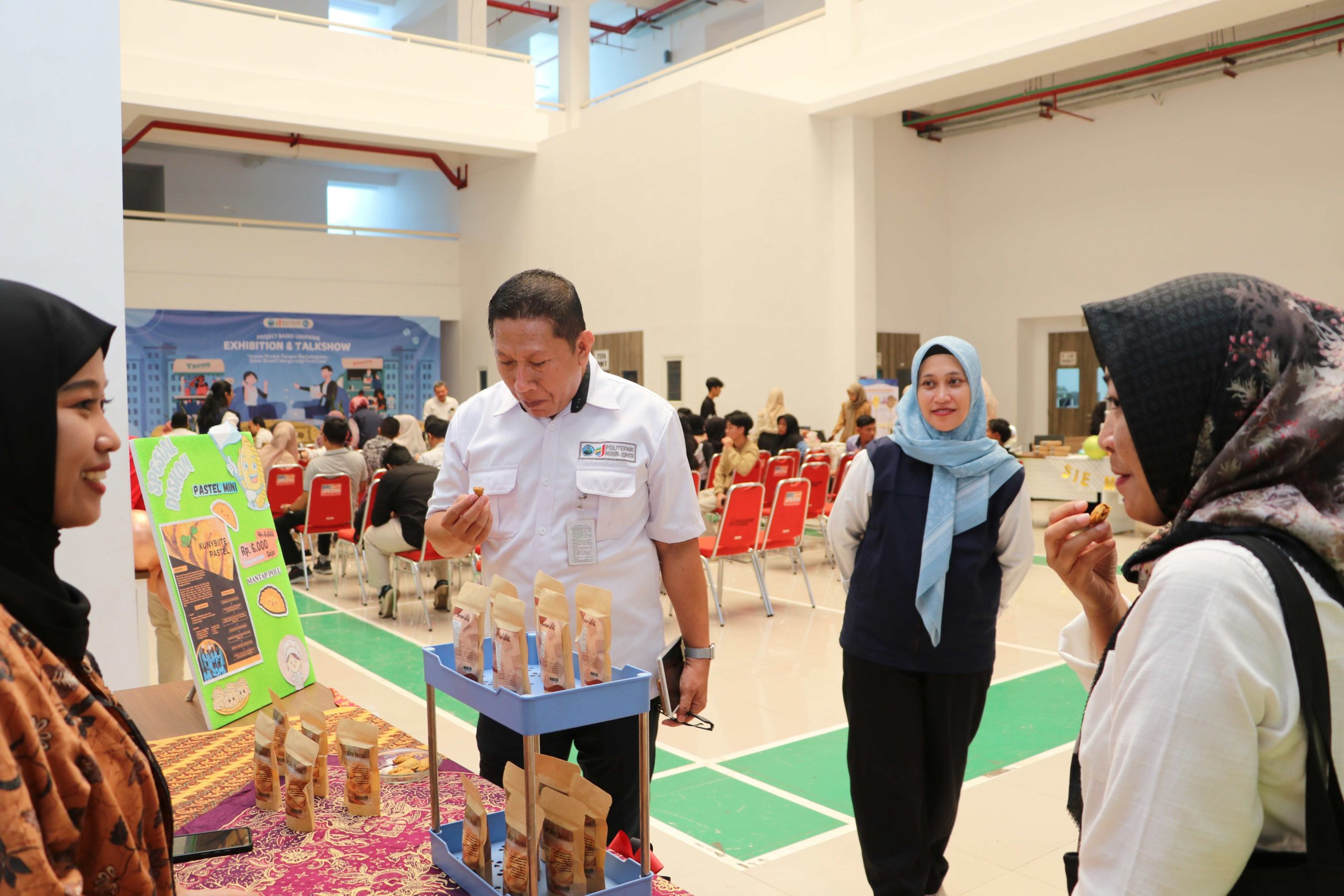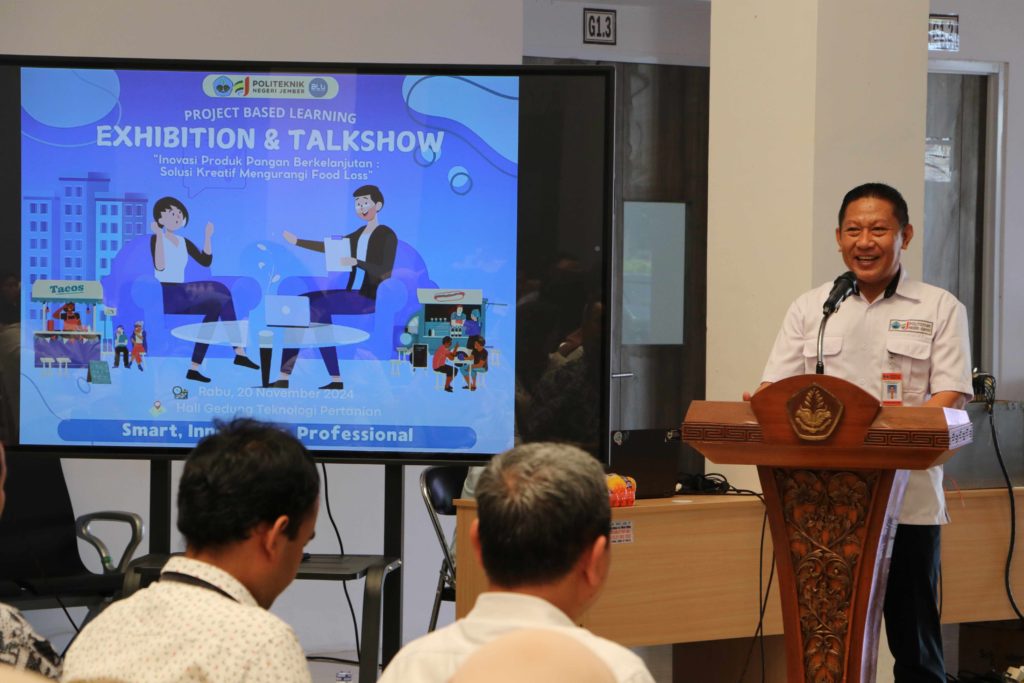

The Food Industry Technology Study Program (TIP) of the Agricultural Technology Department ofPoliteknik Negeri Jember (Polije) held a Project Based Learning (PBL) Exhibition and Talkshow. With the theme “Sustainable Food Product Innovation: Creative Solutions to Reduce Food Loss”, the activity which took place in the Hall of the Agricultural Technology Department Building succeeded in attracting the attention of various parties, including students, lecturers, and industry partners.
This activity is an event to showcase student work that focuses on sustainability-based food product innovation. Aulia Brilliantina, S.TP., M.P., as the Coordinator of the Food Industry Technology Study Program, explained that this event aims to introduce student work that is integrated in a project-based learning model.
“This activity is a tangible manifestation of collaboration between students, lecturers, and industrial partners. We carry the theme of sustainable food product innovation with the aim of creating creative solutions to reduce food loss. The raw materials used are reject products from PT Mitra Tani 27, such as edamame and reject sweet potatoes, which have not been maximally utilized before,” explained Aulia.
Aulia added, through this activity, students not only learn about product innovation, but also contribute to providing solutions for industrial partners.
“We see that PT Mitra Tani 27 has great potential to process tens of tons of reject products that are currently still unutilized. Students try to provide solutions in the form of processing waste into economically valuable products, such as cookies, bread, and cakes based on edamame and sweet potatoes. That way, the theme of this activity, namely reducing food loss, can be achieved,” he added.
This activity was opened directly by the Deputy Director for Planning, Cooperation, and Information Systems, Agung Wahyono, S.P., M.Sc., Ph.D. In his speech, Agung emphasized that PBL) is a learning approach that is in line with the Ministry of Education’s mandate for vocational education.
“This project-based learning model is an important part of efforts to improve the main performance indicators (KPIs) of higher education, especially KPI-7 which emphasizes the importance of collaboration with industrial partners. PBL also equips students with comprehensive skills, ranging from product development, economic analysis, to marketing. Thus, Polije graduates are not only academically competent, but also ready to compete as entrepreneurs in the food sector,” said Agung.
According to Agung, this learning model has actually been implemented for a long time at Polije, especially through students’ final assignments in the form of independent business projects.
“Students have previously been accustomed to developing product innovation topics, planning production, and conducting economic analysis. However, with a more structured PBL format like this, the learning process becomes more optimal and oriented to industrial needs,” he added.
One of the main points of this activity is food product innovation based on the principles of sustainability and zero waste. Edamame waste and reject sweet potatoes that were previously not utilized are now processed into various products with economic value. With this approach, students are expected to make maximum use of raw materials and reduce food waste throughout the supply chain, from post-harvest to distribution to consumers.
“In food processing, the proportion of post-harvest loss or food loss is quite high at various stages, such as harvesting, handling, storage, and distribution. Therefore, innovations like this are very relevant to reduce food waste and increase added value,” Agung said.
The products produced by the students not only have economic value, but also offer high nutritional benefits.
“Edamame and sweet potatoes are rich in fiber and starch, so these processed products such as cookies, bread, and cakes are not only innovative, but also healthy. In addition, these products show great potential to be developed as commercial-scale businesses,” he added.
Through this activity, students not only learn about the technical aspects of food processing, but are also trained to think creatively, work together in teams, and innovate. With this experience, students are expected to become agents of change in the food sector, especially in reducing food loss and creating sustainable solutions.
“In the future, we hope that programs like this will continue to be developed. In addition to improving students’ skills in product innovation, they also learn about marketing and economic analysis. These are important provisions to become competent and resilient entrepreneurs,” Agung concluded.
This activity successfully displays the spirit of collaboration between the world of education and industry, as well as being a concrete step in facing the challenges of reducing food loss. TIP Polije Study Program is committed to continuing to develop innovations that are sustainable and relevant to the needs of society and industry. (rda)